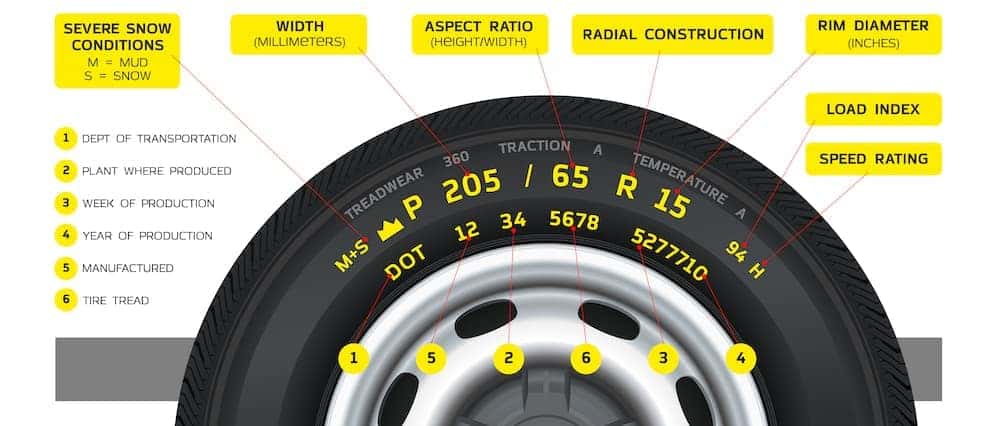A car tire typically weighs around 20 to 25 pounds. Car tire weight can vary depending on the size, type, and brand of the tire.
When it comes to car maintenance and performance, one often overlooked aspect is the weight of the car tire. While it might seem like a minor detail, tire weight can significantly impact various aspects of vehicle performance, fuel efficiency, and even safety.
In this blog post, we will explore the factors that contribute to the weight of a car tire and provide insights on how it can impact your driving experience. So, let’s dive in and discover more about car tire weights!

Credit: www.ispits.net
Contents
- 1 How Much Does a Car Tire Weigh?
- 2 Impact Of Tire Weight On Performance
- 3 How to Choose the Right Tire Weight for Vehicle
- 4 Frequently Asked Questions
- 4.1 How Much Does A Car Tire Weigh?
- 4.2 What Factors Determine The Weight Of A Car Tire?
- 4.3 Does The Weight Of A Car Tire Affect Fuel Efficiency?
- 4.4 Why Is It Important To Know The Weight Of A Car Tire?
- 4.5 Can The Weight Of A Car Tire Affect Vehicle Handling?
- 4.6 How Can I Find Out The Weight Of A Specific Car Tire?
- 5 Conclusion
How Much Does a Car Tire Weigh?
When it comes to the basics of car tire weight, it’s essential to understand the factors influencing weight and the average weights by tire type.
Factors Influencing Tire Weight
The weight of a car tire is influenced by several factors, including tire size, tread pattern, and construction materials. Larger tires tend to weigh more than smaller ones, while the tread pattern and the materials used in the tire’s construction can also impact its overall weight.
1. Tire Size
The size of the tire is one of the most significant factors affecting its weight. Larger tires generally weigh more than smaller ones due to the increased amount of rubber and other materials used in their construction. Tire size is typically indicated on the sidewall of the tire in a series of numbers and letters, for example, 225/45R17. Here’s a breakdown of what these numbers mean:
- 225: The width of the tire in millimeters.
- 45: The aspect ratio, which is the height of the tire’s sidewall as a percentage of the width.
- R: Indicates that the tire is of radial construction.
- 17: The diameter of the wheel in inches.
2. Tire Type
Different types of tires are designed for various purposes, and their weights can vary accordingly. The most common types of car tires include:
- All-Season Tires: These are the most common type of tire and are designed for general use in a variety of weather conditions. They typically weigh between 20 to 25 pounds (9 to 11 kilograms).
- Performance Tires: These tires are designed for enhanced handling and speed, often used in sports cars. They can be slightly heavier, weighing between 22 to 28 pounds (10 to 13 kilograms).
- Off-Road Tires: These tires are built for rugged terrain and are usually heavier due to their thicker tread and more robust construction. They can weigh between 30 to 45 pounds (14 to 20 kilograms) or more.
- Winter Tires: Designed for snowy and icy conditions, these tires can weigh similar to all-season tires but sometimes slightly more due to additional tread and materials used to improve grip.
3. Tire Construction
The construction of a tire, including the materials used and the design of the tread pattern, also affects its weight. Tires are generally made from a combination of rubber, fabric, and metal. The types and amounts of these materials can vary:
- Rubber Compounds: Different rubber compounds are used for the tread and the sidewalls, affecting the tire’s weight.
- Steel Belts: Tires with more steel belts or thicker steel belts are typically heavier.
- Reinforcements: Additional reinforcements, such as Kevlar or other materials, can add to the tire’s weight, especially in performance and off-road tires.
Average Weights By Tire Type
On average, a small car tire weighs around 22 pounds, while a larger truck tire can weigh up to 55 pounds. The table below provides a general overview of the average weights of different types of car tires:
| Tire Type | Average Weight (in pounds) |
|---|---|
| Compact Car Tires | 20-25 |
| Sedan Tires | 22-28 |
| SUV Tires | 30-35 |
| Truck Tires | 45-55 |

Credit: www.mccluskeychevrolet.com
Impact Of Tire Weight On Performance
Car tire weight plays a crucial role in the overall performance of a vehicle. From fuel efficiency to handling and safety, the weight of the tires can significantly impact various aspects of driving. Let’s delve into the specific areas affected by tire weight.
Understanding the weight of your car’s tires is important for several reasons, including vehicle performance, fuel efficiency, and safety.
1. Vehicle Performance
The weight of the tires affects the overall unsprang weight of the vehicle, which refers to the components that are not supported by the car’s suspension system (i.e., wheels, tires, brakes). Higher unsprang weight can negatively impact the vehicle’s handling, braking, and acceleration:
- Handling: Heavier tires can make the vehicle feel less responsive, particularly in terms of steering and cornering. This is because heavier tires increase the rotational mass, which requires more force to change direction.
- Braking: Increased tire weight can also affect braking performance, as the brakes must work harder to stop the additional mass.
- Acceleration: Heavier tires can slow down acceleration, especially in vehicles with smaller engines, as the engine must work harder to overcome the increased weight.
2. Fuel Efficiency
Tire weight can influence fuel efficiency. Heavier tires require more energy to rotate, which can lead to increased fuel consumption. This is especially noticeable in city driving, where frequent starts and stops occur. Lighter tires can help improve fuel efficiency by reducing the amount of energy needed to accelerate and maintain speed.
3. Safety
The weight of your tires can also impact safety. Properly matched tire weight and type to your vehicle ensure optimal performance under various driving conditions. Mismatched or overly heavy tires can lead to poor handling and increased stopping distances, which can compromise safety.
How to Choose the Right Tire Weight for Vehicle
Selecting the right tires for your vehicle involves balancing various factors, including tire weight. Here are some tips to help you choose:
1. Consult Vehicle’s Manual
Your vehicle’s manual provides specifications for the recommended tire size and type. Following these recommendations ensures that the tires you choose are appropriate for your vehicle’s design and performance characteristics.
2. Consider Driving Needs
Think about how and where you typically drive. If you frequently drive in urban environments with a lot of stop-and-go traffic, lighter tires might be more beneficial for fuel efficiency. For off-road or performance driving, you might prioritize durability and handling, which could mean opting for slightly heavier tires.
3. Balance Performance and Efficiency
If you’re looking for a balance between performance and fuel efficiency, consider all-season tires that are appropriately rated for your vehicle. These tires often offer a good compromise between weight, durability, and performance.
4. Seek Professional Advice
Consult with a tire professional or mechanic who can provide guidance based on your specific vehicle and driving habits. They can recommend tires that offer the best balance of weight, performance, and efficiency for your needs.

Frequently Asked Questions
Here are some FAQs about the car tire weight –
How Much Does A Car Tire Weigh?
Car tire weights vary depending on the size and type of the tire, but on average, they can weigh between 20 to 30 pounds.
What Factors Determine The Weight Of A Car Tire?
The weight of a car tire is determined by factors such as its size, construction, tread pattern, and the materials used in its manufacturing.
Does The Weight Of A Car Tire Affect Fuel Efficiency?
Yes, the weight of a car tire can impact fuel efficiency. Heavier tires require more energy to rotate, which can lead to decreased fuel efficiency.
Why Is It Important To Know The Weight Of A Car Tire?
Knowing the weight of a car tire is important for various reasons, such as ensuring the proper load capacity, selecting the right tire for a vehicle, and maintaining optimal performance.
Can The Weight Of A Car Tire Affect Vehicle Handling?
Yes, the weight of a car tire can affect vehicle handling. Heavier tires can impact acceleration, braking, and overall maneuverability of the vehicle.
How Can I Find Out The Weight Of A Specific Car Tire?
To find out the weight of a specific car tire, you can refer to the tire manufacturer’s specifications, consult the vehicle owner’s manual, or contact a tire professional for assistance.
Conclusion
The weight of a car tire is an important factor that can affect various aspects of your vehicle’s performance, fuel efficiency, and safety. While the average weight of car tires ranges from 20 to 30 pounds, it can vary based on size, type, and construction. Understanding these factors and how they influence tire weight can help you make informed decisions when selecting tires for your vehicle.